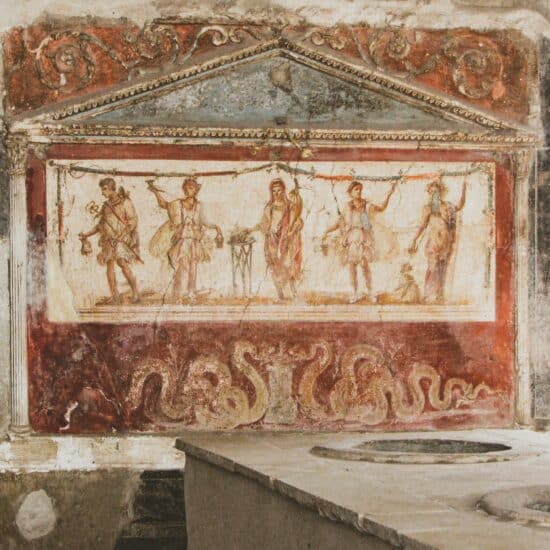 Who Will Deliver Me?
Who Will Deliver Me?
Formations: March 24, 2019
Scripture: Romans 7:14-8:2

Michael K Olmsted
Paul presents two sides, two forces, and one hope. The two sides are: (1) the law is spiritual” and, (2) “but I am of the flesh” (v. 14). The two forces are: (1) with my mind I am a slave to the law of God” and (2) “but with my flesh I am a slave to the law of sin.” (v. 25) The one hope is: “there is therefore now no condemnation for those who are in Christ Jesus” (8:1).
Keep in mind, Paul writes as a Pharisee, a missionary to the world and a church planter who guided both Jews and Gentiles to faith in Christ. Paul is the writer of some of the deepest theological lessons in the New Testament. He could hold his own with the greatest philosophers of that day in Athens. He had earned the credentials to teach the intricacies of Jewish law. Yet this man we recognize as a champion of Christ admits to his imperfections, his struggle to live by the example of Christ and his total trust in the grace of God. There is an honesty in this text that calls us to confront our weaknesses and struggles even as it offers us the steadfast hope that in Christ we can experience God’s ultimate love.
We don’t like to use the word “sin,” because it may remind us of old-fashioned revivals where preachers graphically described the fires of hell for us “sinners,” and warned us to be sure we are really saved. Fear was a common motivation.
These days we pretend not to recognize the ravages of dishonesty, abusive relationships, rampant greed, lying, emotional violence, and so on. But here is the Apostle Paul struggling with his spiritual weaknesses. Do you understand what this means? Paul is so grateful to have experienced God’s love in Christ and he so wants to serve God faithfully that he desires more than anything to consistently live the faith he proclaims.
At the age of seventeen when my faith was brand new, I was having breakfast with my grandmother. Irene Almira Marrit Hanna Olmsted was beautiful, intelligent and a strong Christian. We were talking about faith and I said something like “Oh, I know about sin and what it can do!” Grandmother quietly but firmly responded, “Michael, you have no idea!” That got my attention.
Paul understands what sin can do and so he teaches us, not as a man who has attained spiritual perfection, but as a man who loves God with all his heart, knows his own limitations, and sees in Jesus the One who can teach and shape us as God’s children. This is why Paul confesses: “For I do not do the good I want, but the evil I do not want is what I do” (v. 19). We are not alone!
Does Paul’s confession give you hope? Read the gospels and see the imperfections of Jesus’ closest disciples. James and John wanted the prestigious thrones on each side of Jesus when he came into his kingdom. Simon Peter, the recognized leader after Jesus’ resurrection, had denied his Savior in the courtyard of the high priest on the night of Jesus’ arrest. Paul also writes about his failures, his weaknesses: “So I find it to be law that when I want to do what is good, evil lies close at hand” (v. 21).
We are so programmed to think that as God’s children we will know the answers, achieve a faith that is resistant to temptation and maintain a sweet-spirited success. Nobody really believes that. You cannot know everything, live beyond failure and attain spiritual perfection. We need Christ. This is why there is a cross and resurrection.
Think about your children. Do you love your children? How far will you go to care for and protect your children? Are your children perfect? No, but your children are loved and as a parent you guide them and help them learn from their mistakes. Paul reminds us that “evil lies close at hand” (v. 21) and he points us to the Christ “who will rescue (you) from this body of death” (v. 24).
We compound the power of evil within us and in our world when we think being a child of God means accepting dogmatic fundamentalism that produces judgementalism, self-righteousness, and the failure to see our own flaws. The Christian faith has been misused by some: to claim they are the “true” church, to claim racism is God’s idea, to celebrate wealth as a mark of God’s favoritism, to justify war and genocide, to claim respectability for politicians and dictators, and to cover a multitude of personal sins. But Paul will have none of that. He has played the game of self-righteousness, found it wanting, and discovered joy and meaning in his role as a servant of Christ (Rom. 1:1). Paul asks: “Who will rescue me from this body of death?” and firmly answers, “Thanks be to God through Jesus Christ our Lord” (vv. 24-25). It is the “law of the Spirit of life in Christ Jesus” that sets “you free from the law of sin and death” (8:1-2).
Search the writings of Paul and all the other books of the New Testament and you will find no support for pride, selfishness or immorality. Neither will you see God portrayed as distant and unreachable, choosing to turn his face from us. Certainly God is beyond human description and totally other from us until Christ appears. That is when human intellect is truly confounded. Jesus said to his frightened disciples: “If you had known Me, you would have known My Father also; from now on you know Him and have seen Him” (John 14:7). Behind Paul’s joyful faith and his remarkable life transformation is the simple truth that when Paul encountered Christ he saw God for the first time, and his life was never the same.
There is much in our world and within our inner spiritual yearning that we try to satisfy through moral ideals, social innovations and philosophical systems. But, as Paul discovered, our life will always be seeking purpose and completion until we find the ultimate answer in Christ. Our soul will never be free except through “the law of the Spirit of life in Christ Jesus” (8:2).
There is a transparency in Paul’s writings. He tells the truth about himself, about all of us, and about God. Beyond the man who came from God’s chosen people and devoted his life to studying God’s narrative of seeking lost humankind, there is a man who loved God beyond all else. Paul is alive because Christ is alive, and because God cares deeply for each of us. Who will deliver you from the empty enticements of this world? God in Christ!
Formations is a curriculum series from Smyth & Helwys Publishing, Inc. through NextSunday Resources.
The PDF download requires the free Acrobat Reader program. It can be downloaded and installed at https://get.adobe.com/reader (uncheck optional offers first).



